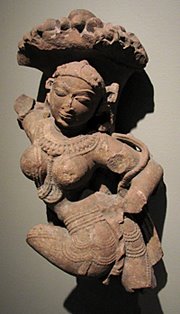Last night I finished the first book in my 2008 reading challenge, Rob Roy by Sir Walter Scott. In January 2007 I read Waverly, which has many similar features. I believe these were Scott’s first and second novels. Rob Roy is among his most popular. The story doesn’t center on Rob Roy, a Scottish folk hero often compared with Robin Hood, and he doesn’t even put in an official appearance until the middle of the book. He has his hands full toward the end of the tale, however, doing quite a lot of Scott’s work for him if you want to know the truth. I am wondering if Scott chose the title to help the book’s sales: as I understand it, Rob Roy was a romantic figure in the 19th Century, a "box office draw" as it were.
The tale concerns Frank Osbaldistone, the son of a successful and wealthy English merchant who does not want to enter his father’s business but to write poetry instead. Father and son quarrel, and Osbaldistone senior packs young Frank off to the estate of his brother (Sir Hildebrand O.) in Northumberland, near the Scottish border, accepting one of his brother’s sons, Rashleigh, the evil one (naturally) into his business instead. Upon arriving at Osbaldistone Manor, young Frank promptly falls in love with the alluring Diana Vernon, who is pledged to marry one of Sir Hildebrand’s sons through a family pact. Darn! Will Frank and Diana marry? Will Rashleigh ruin Frank’s father? Will Rob Roy rescue the reader from Sir Walter’s cumbersome and contrived plot??
I won’t tell.
But, I will make a few observations about my response to the story. Okay, the plot is awful. And so, I have to say, is the Scottish dialect, which is so hard to follow my Folio Society edition (lovely book!) includes a glossary of Scottish words, which, while helpful, hardly reduced the irritation of wading through dialog featuring characters like Andrew Fairservice and Bailie Nicol Jarvie. These are two of the funniest people in the story, but the humor was somewhat diminished for me by my struggles to follow what they are saying. On the other hand, when he isn’t Scotching things up, Scott’s prose is a sheer delight, worth the price of admission, even if it weren’t for the lovely Diana, who is a lot of fun. She isn’t all that believable, honestly, but as at least one critic (A.N. Wilson?) observed many readers just love the idea of Diana. I did.
The story is quite humorous, with lots of physical comedy, though it isn’t all fun and games. Scott does a masterful job depicting the Scottish people and providing gorgeous descriptions of Scotland itself. It is also said to have significant autobiographical elements, the relationship between Frank and his father William bearing more than a passing resemblence to that of Scott and his own father. Scott had no head for business, and eventually faced financial ruin despite the extraordinary success of his novels. Those interested in ghosts (Eloise!) should pay careful attention to Andrew Fairservice’s remarks about seeing a “bogle,” which apparition makes a subsequent reappearance.
Toward the end, Scott more or less gives up and simply tells the reader how everything turns out, which diminishes the fun somewhat, but the tale is still an enjoyable romp for all that.
Monday, February 11, 2008
Subscribe to:
Post Comments (Atom)





2 comments:
Okay, you've convinced me! I don't know why I've avoided Rob Roy until now, I adore Scott so much. I think it was the film Rob Roy that I saw half of a few years ago that has put me off.
Eloise: About the only thing the film and the book have in common are their titles. :-)
Fiske
Post a Comment